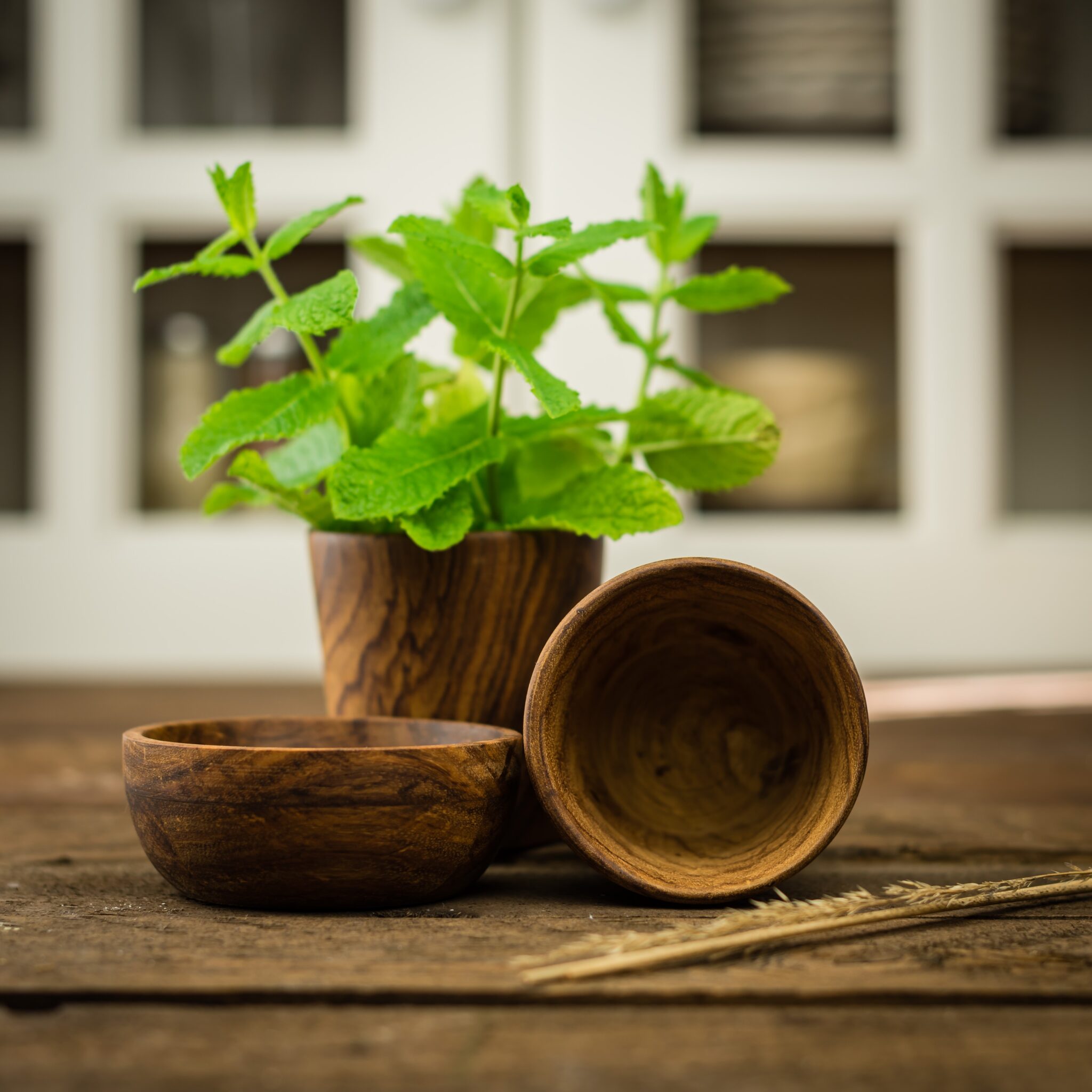Key Takeaway:
- A kitchen herb garden provides fresh, flavorful herbs for cooking: With a kitchen herb garden, you'll always have a fresh supply of herbs on hand to use in your favorite recipes. This eliminates the need to buy expensive herbs from the grocery store or use dried herbs that may not have as much flavor.
- A kitchen herb garden is easy and cost-effective to maintain: Starting a kitchen herb garden is relatively easy and requires minimal investment. You can grow herbs in pots or in a small outdoor space, and most herbs are simple to care for, requiring only proper watering and adequate sunlight.
- A kitchen herb garden offers health benefits: In addition to enhancing the flavor of your food, herbs also offer a range of health benefits. Many herbs are rich in antioxidants and other nutrients that can help boost your immune system and improve your overall health.
Fancy spice up your dishes with fresh, natural flavours? Don't miss out on the perks of having a herb garden in your kitchen! This article will tell you why it's such a great idea.
Introduction
Grow a kitchen herb garden! It's sustainable, eco-friendly and reduces food waste. Plus, you get fresh, organic herbs at your fingertips. No need to buy store-bought herbs, which can be overpriced and full of pesticides and chemicals.
Having an indoor herb garden gives you control over environmental conditions and low maintenance. You can grow perennial herbs that thrive all year round, or hanging herbs that need no extra light. The garden also serves an aesthetic purpose, adding decoration and life to your kitchen. It's a DIY project that you can make uniquely yours.
Growing herbs at home is satisfying and a stress-reliever. Plus, some herbs can act as mosquito repellents or have medicinal benefits. So, why not start a kitchen herb garden today!?
Benefits of a Kitchen Herb Garden
Growing herbs in a kitchen herb garden has numerous advantages that extend far beyond their delicious flavors. In this section, we will explore the benefits of cultivating fresh herbs right in your own kitchen.
We will take a deep dive into the enhanced freshness and flavor that comes from using herbs straight from the garden. Additionally, we will also examine the various health benefits of incorporating fresh herbs into your diet, and how growing a kitchen herb garden can result in cost savings.
So let's get started and discover how a small herb garden in your kitchen can transform your culinary journey.

Freshness and Flavor
Grow a kitchen herb garden! It's got lots of benefits. Here's what you need to know:
- Sustainability: You'll reduce packaging waste, carbon footprint and landfill waste.
- Flavor and Freshness: Homegrown herbs are tastier and smell better than store-bought.
- Stress-reliever: Taking care of plants is a great way to relax.
- Interior Design: Herbs make a great art piece and add green to your home.
- Health Benefits: Organic food is popular. Grow your own – no pesticides or harmful chemicals.
- Cheaper: Save money on herbs by growing your own.
- Weather & Pests: Control the environment, weather, pests and nutrient deficiency.
- Mosquito-repellents: Basil and lemon balm work well.
- Recipe: Try new recipes and experiment with dishes.
Pro Tip: Start with an easy-to-maintain garden. Basil, parsley and thyme are good for beginners. Enjoy the freshness, flavor and peace of mind growing your own kitchen herb garden brings.
Health Benefits
Having a kitchen herb garden offers many health benefits – from reducing stress to protecting the environment. Here are some facts about the advantages of kitchen herb gardens:
- Stress reduction: Gardening is a natural stress reliever that connects you to nature.
- Low maintenance: Kitchen herb gardens are ideal for busy people, only needing minimal upkeep. Smart gardens like Click & Grow require no extra light, watering, or fertilizers.
- Reduces waste: Reusing your kitchen herb garden's remains to create compost decreases landfill waste, lowering methane production.
- Aroma and culinary: Fresh herbs bring aroma and flavor to your dishes, and can upgrade your cooking.
- Environmentally friendly: Kitchen herb gardens attract pollinators and provide a green space for birds and other wildlife. Also, it cuts down the carbon footprint from grocery shopping and transport.
- Seasonality and weather: Growing your own herbs enables you to cope with weather changes and changing seasons. It also offsets nutrient deficiencies that store-bought herbs can have over time.
- Attractive: Growing plants is a creative endeavor, like a live art form. Having a kitchen garden gives personal satisfaction and boosts creativity.
- Convenient: Having a kitchen herb garden means you have fresh herbs at your fingertips whenever you need them.
Pro tip: Beginners should get low-maintenance herb garden kits like Smart Gardens by Click & Grow, making growing herbs easy and effortless.
Cost Savings
A kitchen herb garden has lots of benefits! It reduces costs, relieves stress, and has a positive environmental impact. Growing herbs at home can save $$.
- And, having a ready supply of fresh herbs stops food waste and helps landfills.
Herb gardens provide a calming activity. Planting can improve mood, reduce stress, and promote mental and emotional health.
Window herb gardens are easy and don't need extra resources or lighting. Most herbs do well in a sunny south-facing window. Plus, it's a natural air purifier and improves indoor air quality.
Indoor herb gardens don't suffer from weather fluctuations like outdoor ones. Enjoy fresh and natural spices all year, minus chemicals, and reduce your environmental impact.
In short, a kitchen herb garden is a simple and inexpensive way to improve your cooking, mental health, and environment. Popular herbs to grow include basil, parsley, cilantro, and thyme.
Choosing the Right Herbs for Your Garden
A kitchen herb garden can be a wonderfully rewarding addition to any home, providing fresh and flavorful ingredients for your culinary creations. But with so many different herbs to choose from, how do you know which ones are right for your garden? In this section, we’ll walk you through the process of selecting the best herbs for your kitchen herb garden. We’ll go over some of the most popular herbs used in cooking and examine the factors you should consider when making your choices. By the end of this section, you’ll be ready to start growing a thriving herb garden right in your own kitchen.
Image credits: kitcheninfinity.com by Joel Jones
Popular Kitchen Herbs
Ready to start a hobby? Growing a kitchen herb garden is a great place to start! You can add unique flavors to dishes and reduce your stress levels. But, first you need to choose the right herbs. Consider basil, rosemary, thyme, and mint.
Basil is used in Italian and Thai dishes. It needs lots of sun and moisture.
Rosemary adds flavor to meats and veggies. It prefers dry soil and sun, but it can be grown indoors.
Thyme has small, fragrant leaves. It loves full sun and good drainage.
Mint grows quickly and can be used in drinks and desserts. It does best in partial sunlight and regular watering.
Think about culinary uses and environmental factors. Some herbs are better indoors, and others outdoors. Lighting, temperature and water requirements are different. So, research each herb's needs.
Tip: Start small and add herbs as your knowledge and skill grows. That way you won't feel overwhelmed. Follow these tips and you'll have a successful, flourishing kitchen herb garden that provides fresh herbs throughout the year.
Factors to Consider When Choosing Herbs
Choose the right herbs for your kitchen garden to get tasty meals and a cool smell at home. When selecting, consider these key factors:
- Climate – Pick herbs that can tolerate your local weather.
- Sunlight – Different herbs need different sunlight levels. For example, basil and oregano need full sun, while cilantro and mint don't.
- Soil – Basil and thyme like well-drained soil, and mint and chives prefer moist soil.
- Space – Choose herbs that fit the available space in your garden.
- Personal preference – Select herbs you like and use often. With the right herbs, you can have a flourishing kitchen herb garden for cooking!
Deciding Where to Plant Your Kitchen Herb Garden
When it comes to getting the most out of your kitchen herb garden, deciding where to plant it is of utmost importance. In this section, we'll explore two key options for planting: container gardening and traditional outdoor gardening. We'll also discuss the advantages and disadvantages of each approach, so you can make an informed decision about which method is best for your space and lifestyle. Whether you're short on outdoor space or prefer the convenience of potted plants, you'll find plenty of helpful tips and insights to guide your herb gardening journey.
Container Gardening
Container gardening is a great way to grow herbs for cooking. Where to plant? Consider a few key points. Placement should be sunny with 6 hours of direct sunlight daily. No sunny windowsill? Grow lights help. The right container is key. Good drainage, and the right size. High quality potting mix with added perlite for nutrition and drainage.
Plenty of benefits come with a kitchen herb garden. Fresh herbs for cooking, plus life to space, improved air quality, and reduced stress. Enjoy fresh herbs any time, no extra lighting needed. All year round!
Starting Your Kitchen Herb Garden
Growing your own herbs in a kitchen garden can be a rewarding and cost-effective way to add fresh flavors to any dish. In this section, we will discuss the process of starting your own kitchen herb garden. Whether you have a green thumb or are a beginner gardener, we will cover the essential steps needed to get your herbs growing. From preparing the soil to planting the herbs, and proper watering and maintenance techniques, we will provide you with the knowledge and confidence to grow your own herbs in no time.
Soil Preparation
Ready to start your kitchen herb garden? Preparing the soil is vital for lush, healthy plants for culinary use. Follow these steps:
- Soil: Choose a mix with good organic matter like compost, peat moss, or aged manure. Check the pH level – it should be between 6.0 and 7.5.
- Fertilizer: Too much fertilizer can damage herbs. Use organic fertilizers such as fish emulsion or compost tea.
- Moisture: Keep the soil moist but not waterlogged. Water them weekly.
- Mulch: Use organic mulch like straw or shredded leaves to conserve moisture.
Creating the perfect soil takes effort. But the benefits of fresh herbs for cooking make it worth it! Start your kitchen herb garden today!
Planting Your Herbs
A kitchen herb garden has many benefits, one being fresh flavours right at your fingertips! To begin, choose herbs like basil, parsley, mint, rosemary and thyme, which are very versatile.
Remember these things for success:
- 6 hours of sunlight – if not possible, choose herbs like mint, parsley, chives and cilantro that need little to no light.
- Fertile soil with good drainage – if you have little outdoor space or bad soil, use containers.
- Water regularly – keep moist but not waterlogged.
- Fertilize every few weeks with a balanced fertilizer or compost.
By following these tips, you can enjoy the benefits of fresh herbs and boost your cooking! Pro tip: Plant new seeds or seedlings every few weeks for a continuous supply.
Watering and Maintenance
A kitchen herb garden is needed for healthy plant growth and fresh herbs. Watering and maintenance are super important. Here are some tips to keep yours thriving:
- Soil should be well-drained, and only water when the top inch is dry.
- Use organic, water-soluble fertilizer every 2 weeks in the growing season.
- Prune regularly to encourage new growth and stop plants becoming leggy.
- Check your garden for pests and diseases and treat them quickly.
Get your herb garden going – it's easy and you'll get lots of yummy herbs!
Utilizing Your Kitchen Herbs
Having a kitchen herb garden is a great way to enjoy fresh and flavorful herbs year-round. However, it can be challenging to know how to utilize those herbs in a way that maximizes their potential. In this section, we’ll be exploring the different ways to utilize your kitchen herbs, including:
- Cooking with fresh herbs to enhance the flavors of your dishes.
- Creating unique herb blends to add depth and complexity to your meals.
- Crafting herb-infused oils to incorporate herb flavors and nutrients into your cooking.
Join us as we uncover the multitude of possibilities that come with incorporating fresh herbs into your daily cooking routine. 
Image credits: kitcheninfinity.com by Harry Washington
Cooking with Fresh Herbs
Grow and use fresh herbs in cooking! They add flavor and health benefits. Create a kitchen herb garden. It works indoors and outdoors without extra light.
Popular culinary herbs:
- Basil – Italian and pasta.
- Rosemary – roasted meats and veggies.
- Thyme – soups and marinades.
- Oregano – Mediterranean dishes.
- Mint – cocktails, desserts, and tea.
Kitchen herb gardens reduce waste and save money. Plus, they can boost immunity and digestion. Start your own to level up your cooking and health.
Creating Herb Blends and Infused Oils
Mix up your dishes with herb blends and infused oils from your natural kitchen garden. Italian seasoning, Herbs de Provence, and taco seasoning are popular blends. Italian seasoning has basil, oregano, rosemary, and thyme. Herbs de Provence has rosemary, thyme, oregano, marjoram, and lavender. Taco seasoning has chili powder, cumin, paprika, garlic powder, and oregano.
Infused oils like garlic oil, rosemary oil, and basil oil can be used to sauté veggies, marinate meat, or add to pasta. These herb blends and infused oils are sure to transform your meals with a healthy and unique flavor!
Conclusion
Kitchen herb gardens bring many advantages. Fresh herbs for cooking are right there for you. And that's not all! Growing your herbs means you can control their quality and purity. Organic with no extra light? Yes please! Plus, save money – growing your own herbs beats buying them in the store. Not to mention the health benefits of eating herbs free from chemicals and preservatives. And it's fun and rewarding too! Herb gardening is easy to learn, adaptable, and needs small space.
For anyone who wants to get green-fingered, a kitchen herb garden is great. It's good for health, your wallet, and the environment. A great choice all round!
Some Facts About The Benefits of a Kitchen Herb Garden:
 Kitchen herb gardens provide fresh, flavorful herbs right at your fingertips, enhancing the taste and nutritional value of your meals. (Source: Healthline)
Kitchen herb gardens provide fresh, flavorful herbs right at your fingertips, enhancing the taste and nutritional value of your meals. (Source: Healthline) Growing your own herbs can save you money in the long run, as store-bought herbs can be expensive and often go bad quickly. (Source: The Spruce Eats)
Growing your own herbs can save you money in the long run, as store-bought herbs can be expensive and often go bad quickly. (Source: The Spruce Eats) Kitchen herb gardens are easy to start and maintain, requiring minimal space, light, and water. (Source: Better Homes & Gardens)
Kitchen herb gardens are easy to start and maintain, requiring minimal space, light, and water. (Source: Better Homes & Gardens) Having a kitchen herb garden can encourage healthy eating habits and inspire creativity in the kitchen. (Source: EatingWell)
Having a kitchen herb garden can encourage healthy eating habits and inspire creativity in the kitchen. (Source: EatingWell) Certain herbs, such as basil and mint, can also repel insects and add pleasant aromas to your kitchen. (Source: HGTV)
Certain herbs, such as basil and mint, can also repel insects and add pleasant aromas to your kitchen. (Source: HGTV)
FAQs about The Benefits Of A Kitchen Herb Garden
What are The Benefits of a Kitchen Herb Garden?
The Benefits of a Kitchen Herb Garden are the following: Firstly, it provides fresh herbs for culinary purposes that can be used in different dishes. You can also save money by growing your own herbs instead of buying them from the market. Additionally, you get to have organic herbs that are free from harmful chemicals and pesticides.
What kind of herbs can you grow in a kitchen herb garden?
A kind of herbs you can grow in a kitchen herb garden are basil, cilantro, parsley, thyme, oregano, mint, rosemary, and sage among others. These herbs can be used to add flavor and aroma to different types of cuisines.
Do kitchen herb gardens require added light?
No, most herbs need sunlight to grow, but they do not require added light. You can place your herb garden near a window that gets enough sunlight or outside your balcony.
Can a kitchen herb garden be grown indoors?
Yes, a kitchen herb garden can be grown indoors. You can either use a windowsill, a balcony, or invest in an indoor herb garden kit. However, ensure that there is enough sunlight reaching the plants, or use a grow light if necessary.
Can a kitchen herb garden survive all year round?
Yes, many kitchen herb garden can survive all year round provided they are given the right environment. Some herbs like sage, rosemary, and thyme are perennials and will continue to grow for years. Other herbs may require replanting after several months or seasons.
Does having a kitchen herb garden require a lot of maintenance?
No, having a kitchen herb garden does not require a lot of maintenance. However, you should water the herbs regularly and ensure that they get enough sunlight. Pick the herbs frequently as it promotes bushy growth. Also, prune the herbs once in a while to keep them healthy and ensure that they don't grow too tall.
The post The Benefits Of A Kitchen Herb Garden appeared first on Kitchen Infinity.
source https://kitcheninfinity.com/the-benefits-of-a-kitchen-herb-garden/?utm_source=rss&utm_medium=rss&utm_campaign=the-benefits-of-a-kitchen-herb-garden


No comments:
Post a Comment